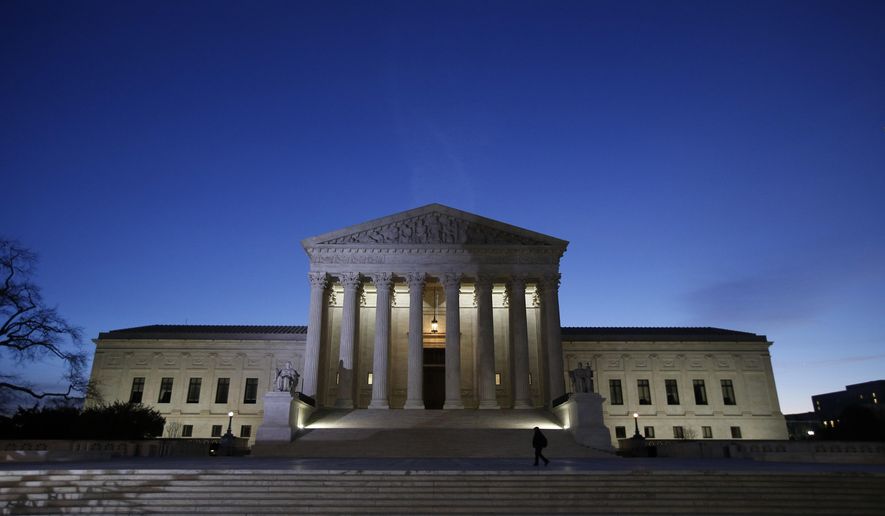OPINION:
The Supreme Court will decide Friday whether to review an appeals court decision enabling the most blatant federal land grab since the federal government broke a treaty with the Cherokee Nation to seize millions of acres of Cherokee land in Oklahoma at the end of the 19th century. The American Farm Bureau, an association of farmers, has sued the Environmental Protection Agency to restrain the agency from assuming the authority to say whether and how a farmer can plant crops on his own property.
Further, it would prevent the EPA from using the decision as precedent to seize new authority over private property anywhere. The appeals courts have so far upheld the EPA’s assuming the right to use the Clean Water Act to impose federal zoning control on millions of acres of America, even eliminating the legal requirement that the EPA must work cooperatively with the states. The EPA prefers to do it its own way, reversing previous Supreme Court decisions and expanding its authority everywhere.
The argument is over what Congress meant when it granted the EPA the authority to regulate activity in the “Waters of the United States.” This was first taken to mean “navigable waters,” and then the EPA expanded the definition to include the tributaries of navigable waters, and now has declared that any activity within any watershed is within the jurisdiction of the EPA bureaucrats in Washington.
Since nearly every square inch of the country is within one watershed or another, the EPA has effectively assumed jurisdiction over everything, and the authority to regulate every land use decision in the country.
If the prospect of the EPA as a national zoning board frightens the innocent and the wary, it’s because it should. The issue arose when the EPA decided, on the basis of one of President Obama’s executive orders issued shortly after he took office in 2009, to claim the power to micromanage decisions within the Chesapeake Bay watershed. An EPA computer model would determine how much land could be farmed and which land could be assigned to which purpose. Neither states nor counties nor townships would have any say, beyond making “implementation plans” based on instructions from geeks and nerds at the keyboards of the computers of the EPA in Washington.
This land grab strips the democratically elected governors, mayors, local executives and legislative bodies of the power and authority they have held since the nation’s founding. It contradicts the language of the Clean Water Act itself — even President Obama’s original executive order, which requires the EPA to work cooperatively with state and local governments and not simply order them to follow instructions.
To bring the EPA to heel, the Farm Bureau sued on behalf of farmers in Maryland, West Virginia, Virginia and Delaware who were ordered to stop farming land their families had owned and farmed for generations. The suit failed in the federal district court and in the federal appeals court. The question at issue now is whether the Supreme Court will take the final appeal, and decide whether the EPA has exceeded its authority. If the Supreme Court declines, the lower decisions will stand as the law. This would render dead several earlier Supreme Court decisions and as precedent enable the EPA to redefine statutory law as it pleases, increasing its own unchallenged power and authority.




Please read our comment policy before commenting.